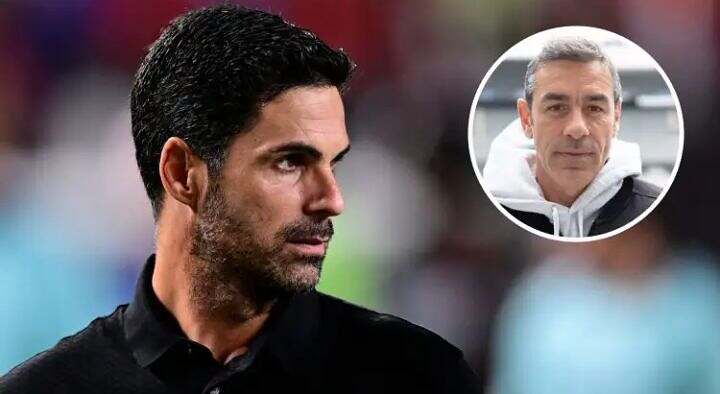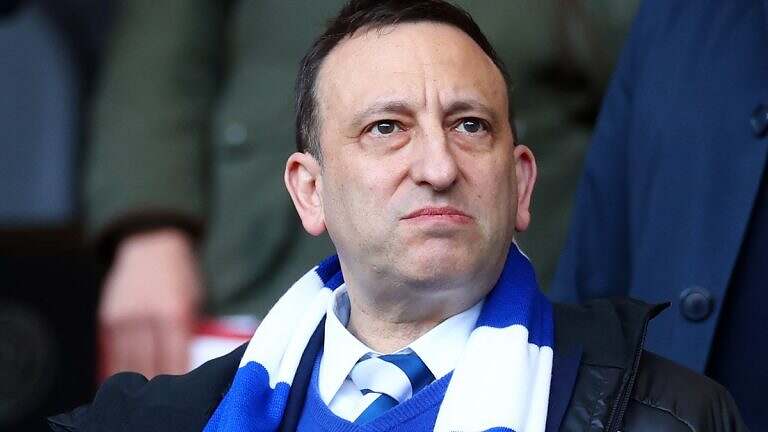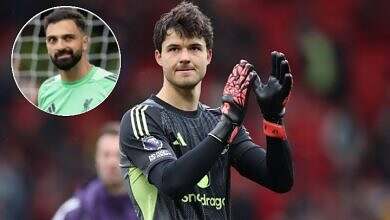Arsenal Legend Robert Pires Predicts Arteta Could Lose His Job: ‘A Change Is Inevitable

Robert Pires has stated that if the Gunners fail to win the Premier League, Mikel Arteta, the manager of Arsenal, will be fired at the end of the season.
Last season, Arteta’s team finished second for the third consecutive season, denying the Gunners the opportunity to win the Premier League title against Liverpool.
Although Arsenal finished the previous season ten points behind Liverpool, the Reds had actually walked to the championship a few months earlier.
Liverpool, who are currently two points behind after defeating Newcastle United in injury time at St. James’ Park, may have their greatest chance to win the championship yet this season.
With Kepa Arrizabalaga, Martin Zubimendi, Christian Norgaard, Noni Madueke, Cristhian Mosquera, Viktor Gyokeres, Eberechi Eze, and Piero Hincapie all coming at the Emirates Stadium, Arsenal have again spent a substantial sum of money on eight new acquisitions.
If Arteta is unable to lead the Gunners to victory this season, former Arsenal winger Pires believes “there will definitely be a change on the bench.” “I think the management will look for another coach if Arsenal doesn’t win a trophy this year,” Pires told Foot Mercato.”
Trending
Unfortunately, he hasn’t been able to capture the title in his five years there. The championship is what the supporters care about. During the summer transfer window, money was spent. The Arsenal board complied with some of his demands.
It won’t be easy because Chelsea will be just behind Liverpool and Man City, who are already there. However, I believe Arsenal has the players and the cards to win the championship.
Gyokeres, a Sweden international, has scored three goals in eight games in all competitions since Arsenal paid a guaranteed £55 million for him this summer, with an additional £8.7 million for performance-related add-ons.

Pires went on to analyze Gyokeres’ performances thus far in England, saying: “He comes from a league where he was a serial scorer, so it’s not easy for him.”
In Portugal, he scored goals time to time. Compared to the Portuguese league, the defenders you face in the Premier League now are far more resilient and harsh.
Therefore, it’s not simple. And then, well, Arsenal wants to win the English title. Therefore, it’s not simple.
What matters most now isn’t simply whether a name lands on a trophy, it’s how the season unfolds in the small moments that add up.
The manager record at the club is full of those incremental wins: football that looks and feels like a plan, youth players given real chances, and a clear identity on the pitch. But the beautiful, patient stuff only carries you so far in a campaign where margins are brutal.
When a game is decided by a single misplaced pass or a late lapse of concentration, the narrative shifts faster than months of careful construction.
So the question for the next few weeks is practical: can Arteta bend the raw ingredients he has into the habit of winning week after week? The signings this summer were not glamour for glamour’s sake.
Zubimendi and Norgaard bring different kinds of calm through the spine, Eze offers a creative spark that was missing at times, and Gyokeres brings a natural instinct in the box. But chemistry is not automatic.
New players need rhythm, and rhythm needs time, time that the calendar is not always willing to hand over.
Look at Gyokeres. He has the striker’s instincts, the quick feet and an appetite for the penalty area. Yet the Premier League’s defenders don’t just mark; they unsettle.
They nudge you off your stride, they make the simple things hard. A striker who thrived in a different league has to relearn opening angles, how to time runs against backlines that bully and clamp down.
His early glimpses have promise, but the real test is how he copes when the goals don’t come for three or four matches in a row and the headlines start to gnaw. That’s a psychological test just as much as a technical one.
And beyond individual adaptation, there’s the tactical balancing act. Arteta must decide how much to hold to his preferred shape and how much to tweak to accommodate fresh faces.
Do you push for more control in midfield at the risk of exposing fullbacks on quick counters? Do you ask Gyokeres to press more, possibly draining his sharpness in the final third, or shelter him to save his finishing touch?
Those are choices that reveal a coach’s hand. They also reveal his willingness to accept discomfort in the short term for stability later.
Another factor often overlooked is the dressing room’s mood. Success, after all, is contagious but so is doubt. Players read the room. They notice the way the manager speaks in public, the subtle changes in training intensity, the looks between senior figures.
If Arteta can keep a calm, communal focus inside the walls, the external pressure becomes background noise. If not, little fractures become visible.
The summer outlay shows the board’s faith; but players need clarity more than cheques. Clear roles on the pitch, and honest conversations about form, matter more than any headline signing.
Fixture congestion will be unkind too. European nights and weekend league games test squad depth and managerial rotation.
This is where Arteta’s planning will be examined. Will he rotate smartly, keeping enough momentum in the league without sacrificing cup or continental ambitions?
Or will attempts to do both leave the team stretched thin and less coherent? Clever rotation can look like genius when it works, and like chaos when it doesn’t.There is also a broader club context that colors every result.
The board and the owner can swallow a difficult month if they see a project progressing, academy graduates stepping up, improved underlying statistics, or a recognizable pattern in how the team plays even in defeat.
If Arsenal keeps getting results without any real signs that the team is improving, people’s patience will run out quickly.
Arteta’s job isn’t just about winning trophies it’s about making sure everyone at the club sees the team moving in the right direction.
Consider the fans. They have grown used to a certain standard under Arteta. Their patience is finite, but it’s not blind. Many will forgive a season without silverware if they see the club moving forward with purpose and dignity.
But patience evaporates where there’s no narrative to follow, no sense that the team is learning from its mistakes.
Results matter, yes, but the story behind them, the small improvements that promise more often decide whether a coach is given another chapter or a quiet exit.
In the end, the next few weeks aren’t just about wins or losses. What really matters is seeing the team come together, new players settling in, and the squad handling pressure without losing their style or confidence.
If Arteta can produce that kind of progress, the debates will cool. If not, the voices calling for change will only grow louder, and the club will be left weighing patience against the urgent, very modern hunger for instant success.






